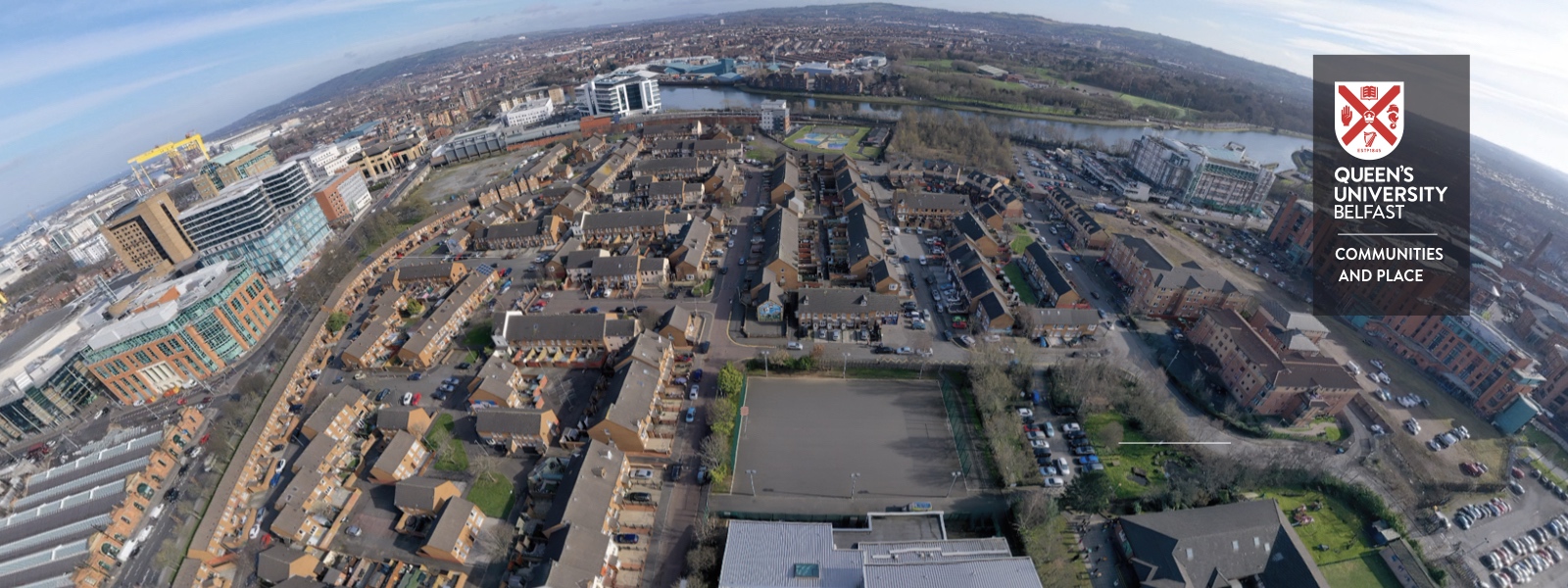Reflections On Working Better Together After COVID
“The strength of our community fabric is one of our greatest assets” says Moira Doherty, Deputy Secretary for Engaged Communities Group in the Department for Communities in a contribution to QCaptures.

The Department of Communities (DfC) and Queen’s University Belfast (QUB) recognise that the pandemic has taught us all a great deal about social and community engagement. The Department is delighted to be able to contribute to QCAPtures to reflect on learning so that we might all work better together.
“Alone we can do so little; together we can do so much.” Helen Keller
Department for Communities Covid Response - Better Together
The pandemic brought huge challenges, but it also has created opportunities for innovation and new ways of working and, perhaps most importantly, forged new relationships and partnerships. At the outset of the emergency our Minister, Deirdre Hargey, MLA, put measures in place to mitigate the impact of Covid on individuals, families and our community organisations. She adjusted grant terms and conditions to all community groups receiving funding from her department, to allow funded groups to pivot their activities swiftly to where they were needed most. She established a Voluntary and Community Sector Emergencies Leadership Group, with members drawn from grassroots and regional organisations, to codesign with officials a range of interventions. This group, which I chaired, and its approach was critical to delivery during the pandemic, and has created a legacy of a new relationship between the department and the voluntary and community sector.
We came together as a team, with organisational boundaries and politics put to one side. We quickly forged a shared purpose as we worked collectively to deal with the challenges facing our communities. The emergency drove a level of candour that, at times, was uncomfortable but allowed our mutual respect and understanding to deepen. The real time insights provided by community partners was invaluable in giving us a head start to adjust our approach in a rapidly evolving environment.
Within weeks of lockdown being announced we established a Freephone Covid helpline; began distribution of over 200,000 food boxes through community partners to vulnerable and isolated people; launched an online Wellbeing Hub supported by 15 mental health charities and 28 Healthy Living Centres; mobilised a vast community of volunteers, alongside a range of other interventions developed and delivered with voluntary and community sector partners.
So, What Will Change?
A number of the lessons from the pandemic we are now committed to mainstream, including “rightsizing” our approach to grants to ensure maximum flexibility and proportionate governance. The importance of authentic, mutually respectful partnerships and relationships remains a golden thread. Another key lesson is around the insights provided by layering lived experience and practitioner wisdom over other forms of data. This was most clearly seen when one community partners immediately felt that the estimates around the numbers of people shielding was not borne out by what they were seeing on the ground – this allowed us to adjust our modelling to provide some additional headroom to scale up our interventions. This proved to be a wise move, when we later learned that the initial modelling was far below the actual outturn. One final lesson for us to remain focused on outcome and impact before deciding on the “who” and the “how” – sometimes the best solution is for government to create the enabling environment where others deliver, and then get out of the way!
While there is no doubt that the pandemic has had a devastating impact on many organisations and individuals, but it has also strengthened relationships across organisations and sectors, and has provided a new playbook for how we work together. The strength of our community fabric is one of our greatest assets, and we have a renewed appreciation for government’s role in sustaining and supporting it.

